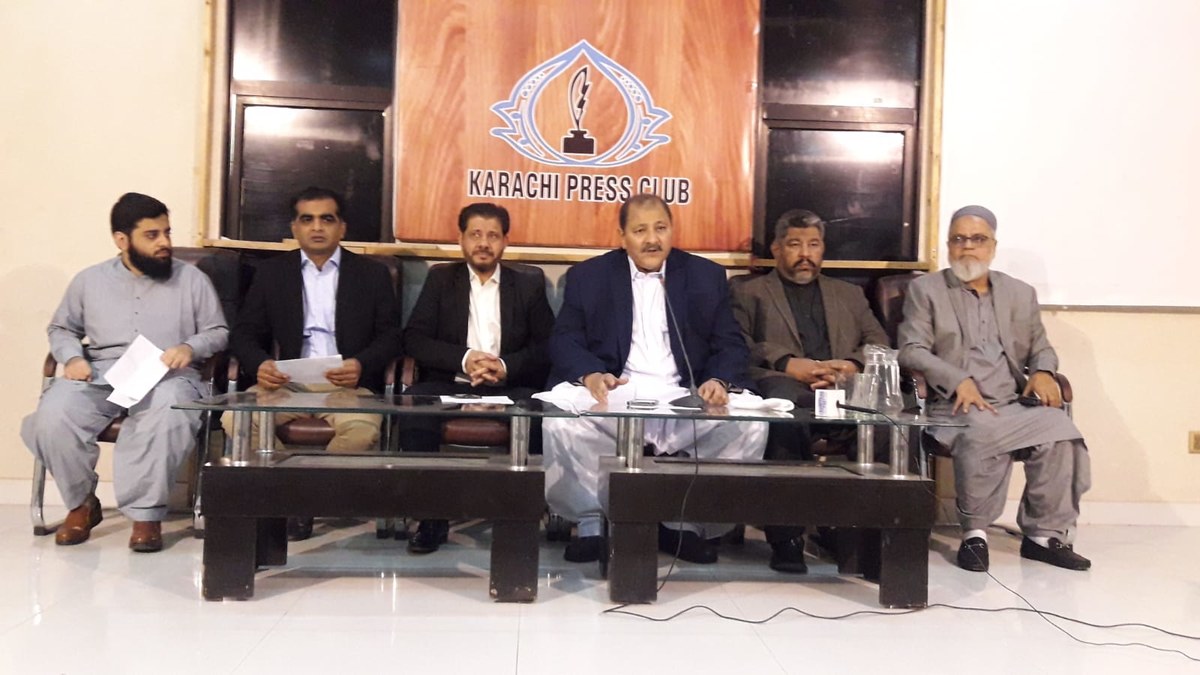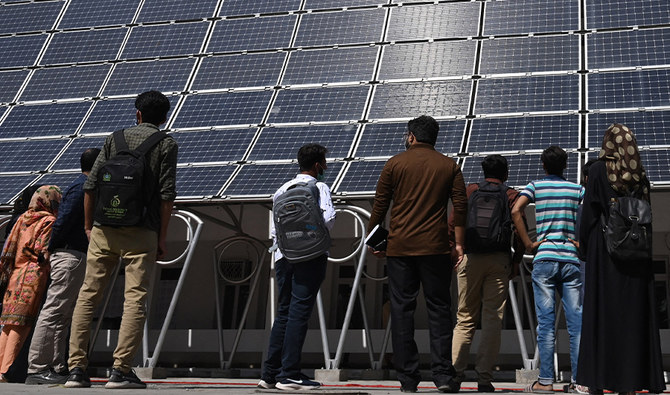KARACHI: The imposition of sales tax on the import of solar panels in Pakistan would increase their price by about 30 percent, said dealers and importers on Tuesday, adding it would also make it difficult to add clean power to the country’s energy mix in the coming years.
Pakistan levied sales tax on nearly 150 items, including solar panels, through a supplementary finance bill that was approved by the National Assembly earlier this month to meet one of the conditions of the International Monetary Fund (IMF) for the revival of a stalled $6 billion loan program.
“After the implementation of this tax, the price of solar panels will increase from Rs55 per watt to Rs70 per watt. This is almost a 30 percent surge,” Naveed Karar, vice chairman of the Pakistan Solar Association (PSA), said while addressing a joint news conference with the Karachi Electronic Dealers Association (KEDA).
“If the government will not take this decision back, its impact will be devastating for solarization and industry,” he added.
Pakistan is pursuing Prime Minister Imran Khan’s policy to reduce carbon emissions and decrease its reliance on imported fossil fuel, as it hopes to add 30 percent clean energy to its power mix by the end of this decade.

Saleem Memon, senior vice president of the Karachi Electronic Dealers Association, can be seen with the officials and representatives of the Pakistan Solar Association at a news conference in Karachi, Pakistan, on January 25, 2022. (AN Photo)
Dealers said the recent move to tax solar panels would undermine that vision.
“The imposition of sales tax on the import of solar panels will definitely discourage the government’s efforts to increase the share of renewable energy to the total power mix,” Karar said, adding the decision had been taken despite assurances from the finance minister that the product would not be taxed.
Saleem Memon, senior vice president of KEDA, said sales tax would increase the rate by about Rs12,000 per panel of 540 watts.
“This will be beyond the purchasing power of people who live in the country’s remote areas and frequently rely on this technology,” he added.
Memon said the sales tax would be over and above the freight costs and other charges which were already too high.
“Freight charges have been increased from $800 per container to $6,000,” he said, adding: “The allied products of solar panels, including inverters and batteries, have also been taxed.”
Muhammad Zakir Ali, member of the PSA executive committee, informed that 80 percent solar panels were used by people who did not have direct access to electricity in Pakistan.
He informed that people had imported about 2,380 megawatts of solar panels in 2021 and were planning to increase the quantum further.
“The decision will discourage the use of solar power system in the country since there is no local production of these panels,” Ali said, adding: “The government should have taken the stakeholders into confidence before taking this decision.”
The installation of a solar system is a one-time investment which provides continuous power supply for more than 25 years without additional costs when compared to other power plants that need costly fuels, he added.
















